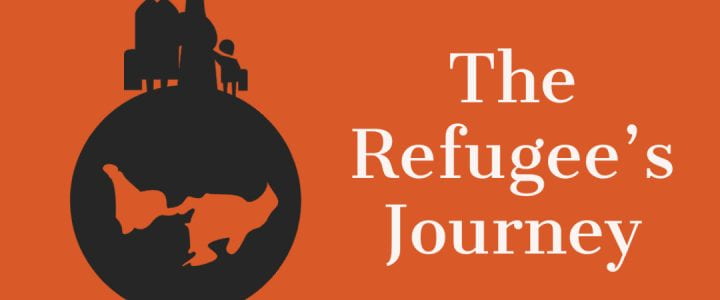The life of a refugee
Hardship, struggle, battle, this is the life of a refugee one who has to leave their country and move to another one. Wikipedia defines refugees as generally “A displaced person who has been forced to cross national boundaries and cannot return home safely.”
The Struggles of the Refugee
Unlike a migrant or immigrant who goes to a country in mind of a pull factor a refugee goes to a country in mind of a push factor. What are push and pull factors? A push factor is something that happens where a person is living that encourages them to leave and a pull factor is something that happens in another place that encourages them to go live there. So when I talk about refugees I mean only those who have to leave due to a push factor: a danger or unfavorable event that happened in their country.
A refugee’s life is very tough considering that they were already pushed out of their home not only do they have to make a journey to a new place to call home but when they finally find a place they can call home, conditions might not be too great there as in there might not be job opportunities or open housing.
The first step of a refugee’s adventure is to leave. Sometimes this is extremely easy and sometimes this is the hardest part of the journey. A person planning to seek refuge in a different country might be able to just walk out, for example maybe their country’s problem is an economic crisis in most cases you would just be able to leave, however, if the problem is a dictator or gang or maybe a crisis piled with a superior power then the person might have a rough time, for example, it might be impossible to go back without being in danger if you leave a country under a dictator’s rule or it might be dangerous to leave a country with gangs without getting hurt.
The next step of the refugee’s journey is getting to the destination. Often this is the hardest part and often they don’t come out unscathed. The refugees might have to go across waters many have drowned in, they might have to walk in blizzards that many have frozen in, they might have to walk across deserts that many starve in, and they might have to walk in streets that take no sympathy to them.
The final step of the refugee’s journey is the destination. The refugee might not even be given a refugee status and have to leave, the living conditions might not have been as promised, or there is nobody there to help them. Nevertheless, they have made it, the refugee has braved their journey however there’s more after the journey is the country accepting of this refugee being here?
The Host Country’s Struggles
When a country takes in refugees they are called a host country because they host people. When a country hosts refugees it creates Political, Environmental, Social, and Economic impacts. (ESPeN as in Economic,Social,Political, and eNvironmental which can be used to describe all impacts some occurrence might have on a country.) The word impact is always used with a negative connotation, however, the word impact actually has a denotation that means the effect in cause and effect so when I say impact I could mean a positive impact or a negative one.
Most people believe that refugees only bring negative impacts such as stealing jobs, taking housing, and deterring the government from actual problems. This is wrong. Refugees can bring positive impacts towards a country, it’s not often but it does happen.
Refugees can have negative impacts on a country. This means things that refugees do that hinder the country and make them unwelcome. A refugee may bring their sons and daughters over to the new country, this is fine until all the refugees decide their children need to go to school which could cause 3000 new people to attend school in a day, which is bad as there are most definitely not enough schools for the hosts and refugees so this is a problem. Refugees also may want to work to support their families back in their home country which can cause a lot of people fighting for jobs. Refugees need special government attention and gain help but that diverts the government’s attention away from more pressing issues.
Refugees can have positive impacts on a country. This means things that refugees do that help the country and make them welcome. Refugees usually get jobs whether those be labor or desk jobs refugees usually find jobs in a country without a lot of job openings this is bad however in a country with tons of job openings the refugees would actually help the economy of the country by working there.
In conclusion, refugees have a hard journey even after they get to their destination and sometimes might not even help the country they went to, being a refugee is hard so the next time you see one give them a pat on the back and congratulations for surviving their hard adventure.


